Springfield's music scene goes underground with DIY basement shows, social media
Twinkling string lights hang among empty, crushed Pabst Blue Ribbon cans in the rafters. For a moment, it's quiet; a few musicians mill around, unpacking gear. Then, footsteps thud down a narrow set of stairs and bodies begin to fill a concrete-walled basement. This is Rock Bottom, one of Springfield's underground music venues.
Driving by, you wouldn't suspect the two-story house to be a popular music venue for both local and small and mid-sized touring acts. On average, the house venue hosts one show a month — though sometimes more, and for musicians interested in performing in the intimate space, they should plan early. The venue is already booked through the end of April.
Performing and attending concerts in nonconventional spaces, like someone's home, is not a new concept. But there's been a resurgence in the do-it-yourself mentality recently, young local musicians say.
A. Sprague, who performs in Springfield-area hardcore bands Martyaloka, Menace and Primitive Rage, said she believes this rejuvenation is a result a "perfect storm" of people's desire to reconnect with live music post-pandemic and the ever-increasing usage of social media. On TikTok, the hashtag "houseshow" has over 40 million views.
Sprague first began booking musicians for DIY concerts (in houses and other nontraditional venues) in 2013 and has operated a few house venues herself. When booking concerts in 2019, "almost no one would come," she said, but when she began booking again in 2021, as pandemic restrictions lifted, "so many people came out."
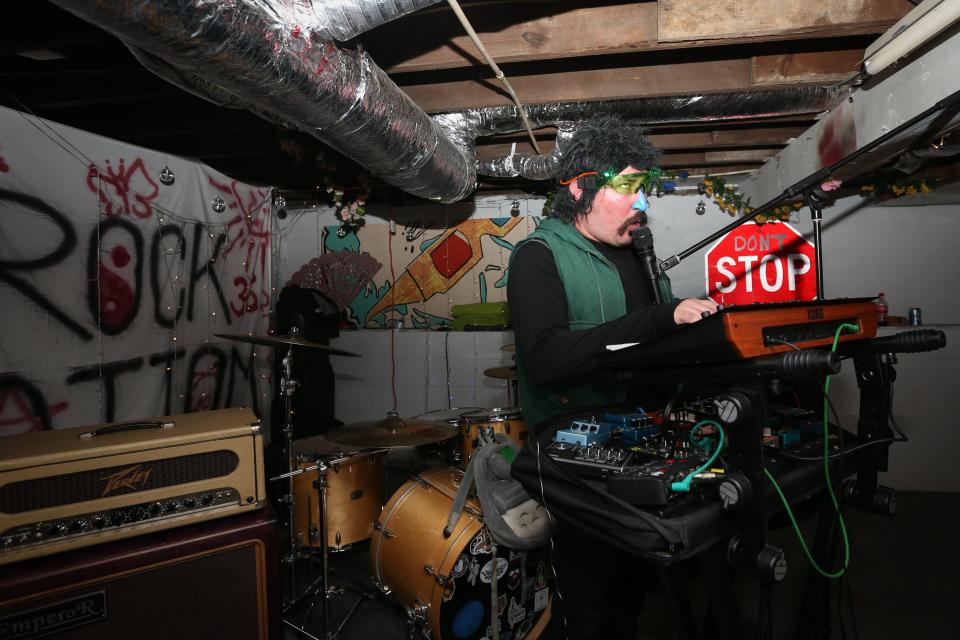
A natural part of the DIY cycle is high turnover, Sprague said, especially in a college town like Springfield, but looking at the community now, she feels things are being "done right."
Although these DIY spaces are thought of as "music venues," organizers like Kodie Brown, who runs Rock Bottom, don't view them as commercial businesses and try to avoid operating them that way. Brown said she thinks of Rock Bottom as a "community building tool" instead, a place for local artists to showcase their work with others.
Brown said she and her roommates know the house's capacity limits, do not go over it and have folks keeping an eye on the space and others to make sure everyone is safe.
Davey Grumbine oversees another house venue in Springfield but asked not to publicize the name to avoid drawing attention to the location, which screens visitors on social media before providing the address.
"It's definitely a risk that I'm taking," said Grumbine, who emphasized that they conducted "a lot of research" before opening their home and educated themselves on operating a hazard-free space for guests. Online publications like Vice and DoDIY provide readers with tips for hosting shows in their homes or other nonconventional locations, with an eye to operating safely and legally.
Informal shows become a regular occurrence
In Springfield, there are three house venues that host concerts regularly: Rock Bottom, Grumbine's and The Glacier, all operated from basements. At any of the three venues, folks will encounter music from an array of genres, including punk, metal, hardcore, indie, folk, country or rap.
Promotion is handled for the most part on Instagram. Each of Springfield's regular house venues has its own Instagram profile, which the organizers use to spread the word about future shows and share photos from past ones. Folks interested in attending a concert must send a message to the appropriate account to acquire the address, which — since it's also someone's home — is not shared publicly due to privacy and safety concerns.
Many other house venues have operated at various times in the past, but not at the current caliber, with designated social media pages to promote upcoming shows and rules for guests to follow.
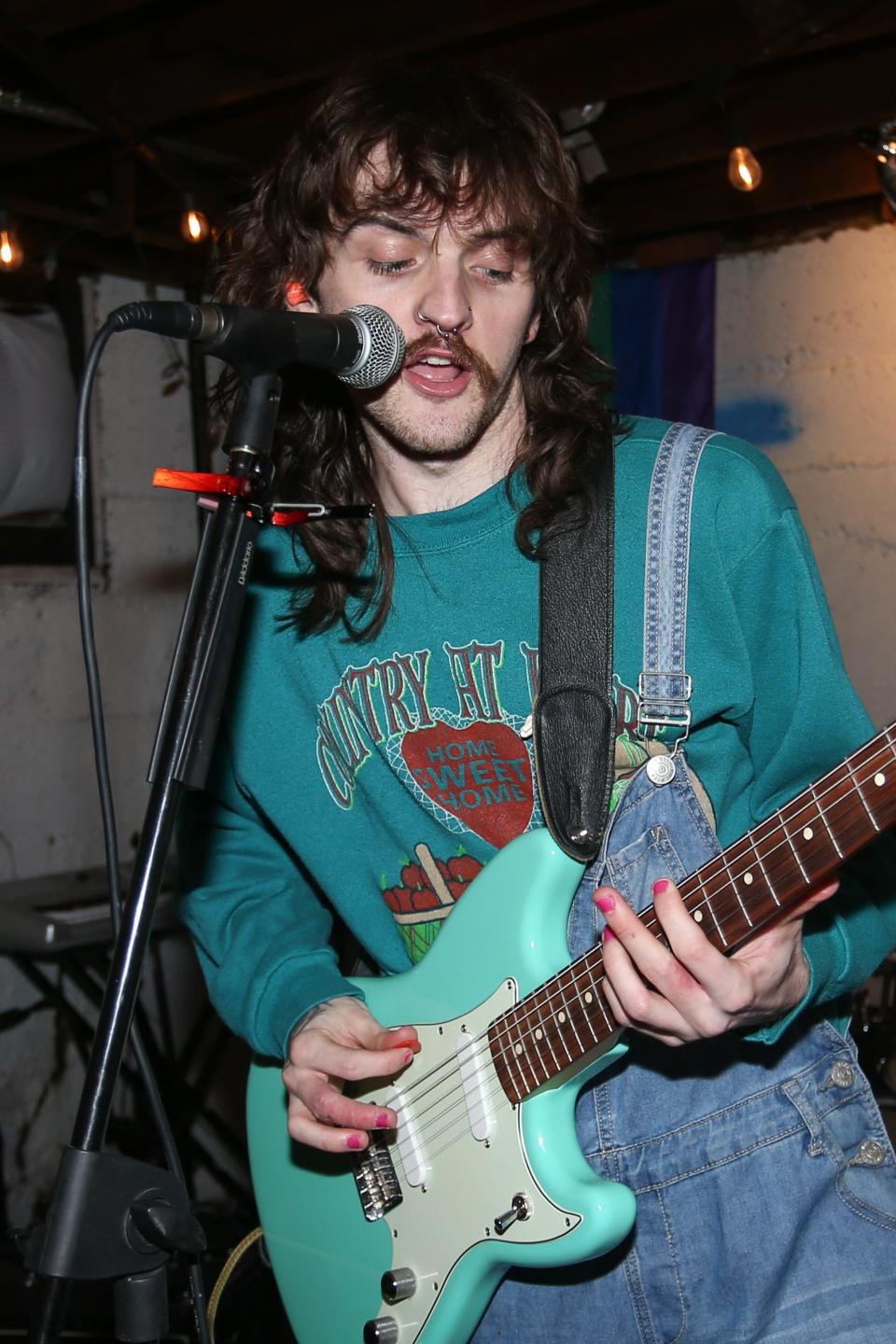
Brown hosted her first concert at Rock Bottom in June 2022, after being encouraged to do so by Sprague. Rules at Rock Bottom center around respecting the house and performing artists — clean up after yourself, inform one of the homeowners if another guest is making you uncomfortable and show regard to the performers' personal space.
Grumbine hosted their first show just a few months before Rock Bottom, in March 2022. Grumbine has two roommates but organizes the basement shows by themselves. Grumbine said after attending a backyard concert in Fayetteville, Arkansas they knew they wanted to be involved in some capacity with operating a DIY venue.
Grumbine has hosted several sober concerts in their basement, where alcohol is not permitted, and told the News-Leader that they intend to host only sober concerts moving forward. Grumbine said part of this is to encourage attendees to prioritize the music but also to remain safe. In summer 2022, Grumbine hosted two sober concerts in their basement because of high temperatures.
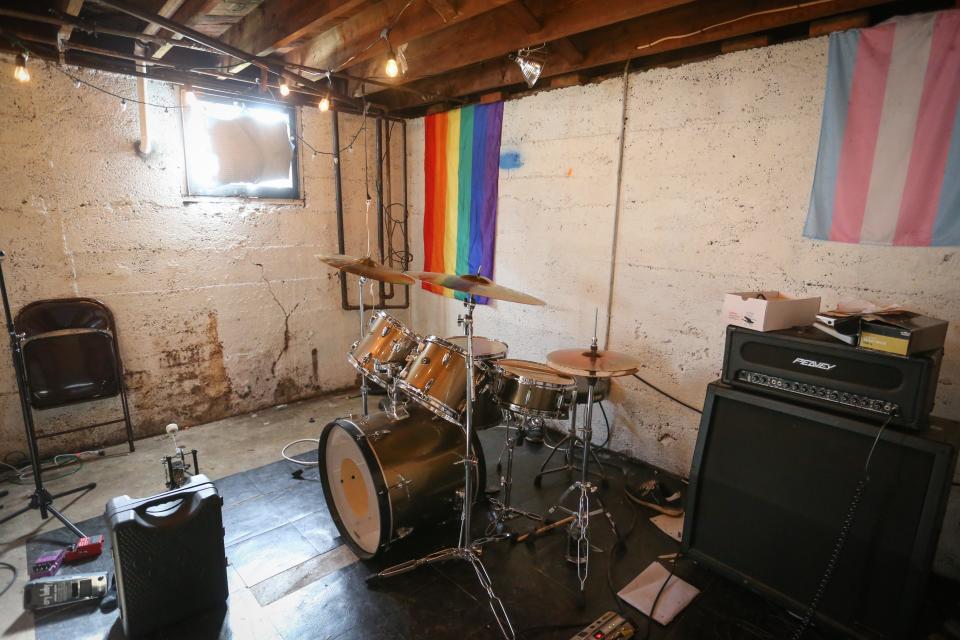
"It was well over 100 (degrees) probably in the house," Grumbine recalled. "I didn't want people to get drunk and super dehydrated and bad things to happen. I just emphasized, 'If you're going to drink, drink water. I don't give a s*** what you do before you come here, but this is not the time to get (drunk). Come to a cool show and then go do whatever you got to do.'"
Musician Grady Drugg, 29, has performed in Springfield for about 10 years. He said the atmosphere at house concerts has evolved since he operated one in the 2010s. He didn't recall ever attending a sober house concert.
"When I was a kid throwing house shows in West Central, it was like a requirement that there at least be one keg," Drugg said. "150 people would show up to my house and at least 75 of those people would stand outside, smoke and drink the keg the whole time. Now, there's such a huge emphasis on not doing that and specifically going to a show for the music and being respectful."
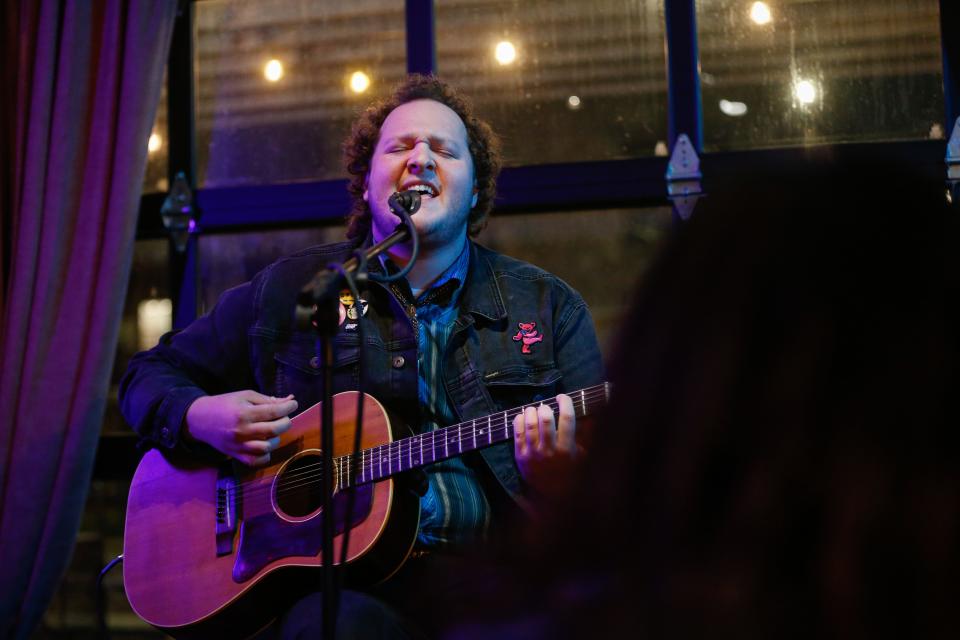
The oldest of the three house venues, The Glacier, "opened" in summer 2021. Venue co-organizer Justin Flowers said he's hosted between 10-15 concerts in the space.
Rock Bottom and Grumbine's venue operate on a "pay what you can basis," meaning donations are encouraged but payment is not required for entry. Grumbine and Brown both said they operates their venues this way to make them accessible.
"You deserve to be there whether you can afford the price of a ticket or not," Grumbine said. "On the flip side, people with more financial security end up donating more to cover those that can't, so it all works out."
House venues raise nearly $2,000 for Missouri Abortion Fund
DIY communities tend to be socially and politically charged, as they make direct statements against participating in mainstream, commercialized business. In addition to hosting fundraisers for venue maintenance and repairs, Springfield's DIY music community has raised money for socio-political organizations.
After Roe v. Wade was overturned in June 2022, Brown and Grumbine hosted fundraiser concerts for the Missouri Abortion Fund. In total, the two concerts raised $1,915.
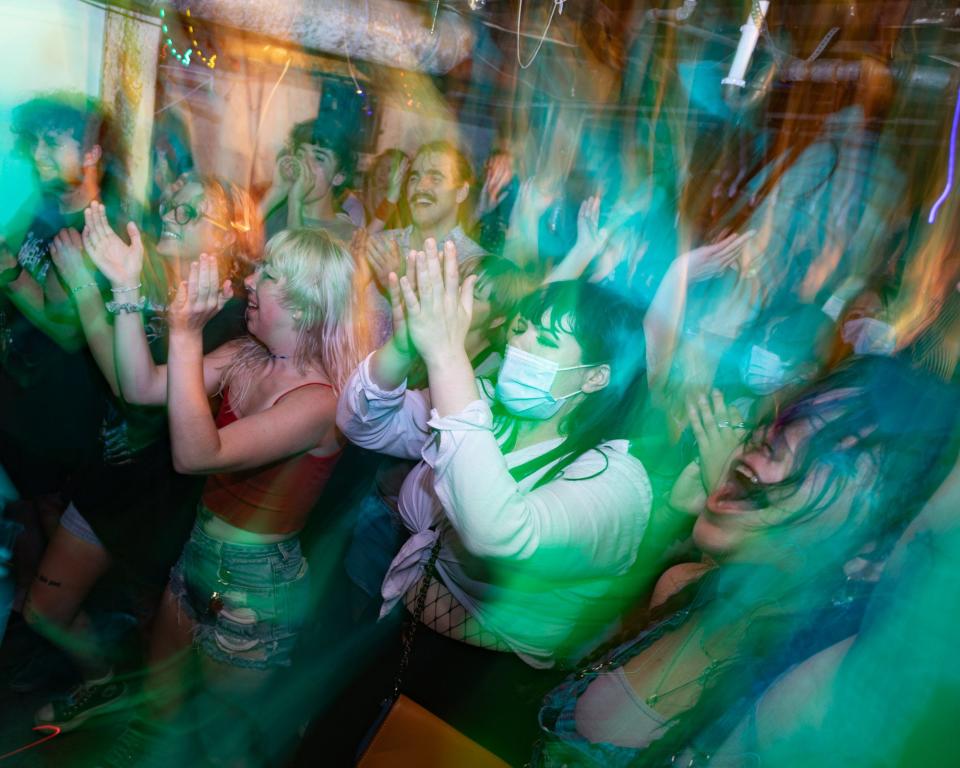
Local photographer Jaylen Early spearheaded Vulva Vengeance, the artist showcase and fundraiser at Grumbine's house.
"I was obviously very upset when I heard Roe v. Wade was overturned and there was just something in me like, I can't sit around and do nothing; I need to do something about this," Early said. "I knew this community was also upset about it, and I knew we would come together for this."
In addition to live music from three performers, the main level of Grumbine's house — traditionally not used during concerts — became a showcase for paintings, photography and a video installation art submitted by local artists. All proceeds made from works on sale at the show were donated to the Missouri Abortion Fund, in addition to donations made at the door.
Working to create safer spaces
Hosting fundraising concerts, like those for the Missouri Abortion Fund last summer, tie in to how house venue organizers work to create inclusive spaces for guests. Musicians who have performed in local DIY venues over the decades says they've noticed a change in atmosphere.
Dan Johnston, 48, began performing in Joplin's DIY community in 1994. Over the years, he has played in several bands, most recently The Itch. Johnston said he enjoyed the rough environment at earlier DIY venues, but they were often dangerous.
"I used to hold my beer bottle like a weapon because I didn't know if something was going to happen," Johnston said. "It was just craziness. Nowadays, the house shows in Springfield, it just feels like a Sunday picnic compared to the way it used to be."
In the late '90s, Gabe Harper and Shannon Brooks, both members of the DIY community, produced a documentary about the community called, "Ozark Babylon." The documentary features VHS footage of concerts at DIY venues and interviews with musicians from 1997 to 1998. Johnston, a member of Joplin band U$MC at the time, was one of the interviewees.
In the mix of the documentary's concert and interview footage is a segment about an anti-racism meeting held at the Brentwood branch of the Springfield-Greene County Library in February 1998. The meeting was the first for the newly formed Anti-Racist Action, but it was interrupted by a member of the American Front, a white supremacist organization, according to previously News-Leader coverage. Due to the interruption, the meeting ended early.
While performing and attending concerts at DIY spaces in the late 1990s and early 2000s, Johnston said he sometimes saw Neo-Nazis present, but he did not interact with them.
"There was an extremity of opinions and personalities at those old shows," Johnston said. "You would see people who would wear swastikas and then people who would wear like radical equality patches at the same place."
As time went on, the Neo-Nazi presence appeared to decline, but some DIY spaces remained exclusive. Marshall Richards, vocalist for Martyaloka, has been performing and attending shows in Springfield DIY venues since around 2008 or 2009. He recalled a time — around 2012 — when spaces were not welcoming for everyone, specifically women and queer individuals.
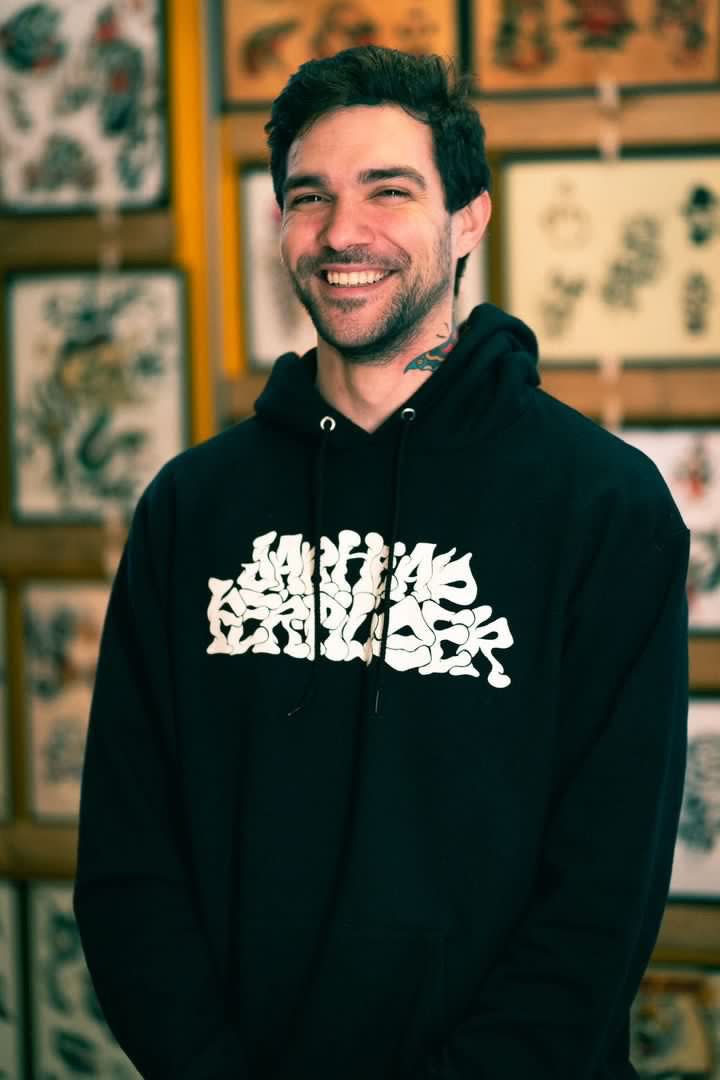
"There was rampant sexism that would get addressed mildly on Twitter or a Facebook group," Richards said. "All hell would break loose for like two days and then nothing would happen." Richards said he's noticed a shift in this mentality, especially since the pandemic.
For Brown and her roommates, Rock Bottom is "first and foremost" a "feminist space," then a community space for local and touring musicians.
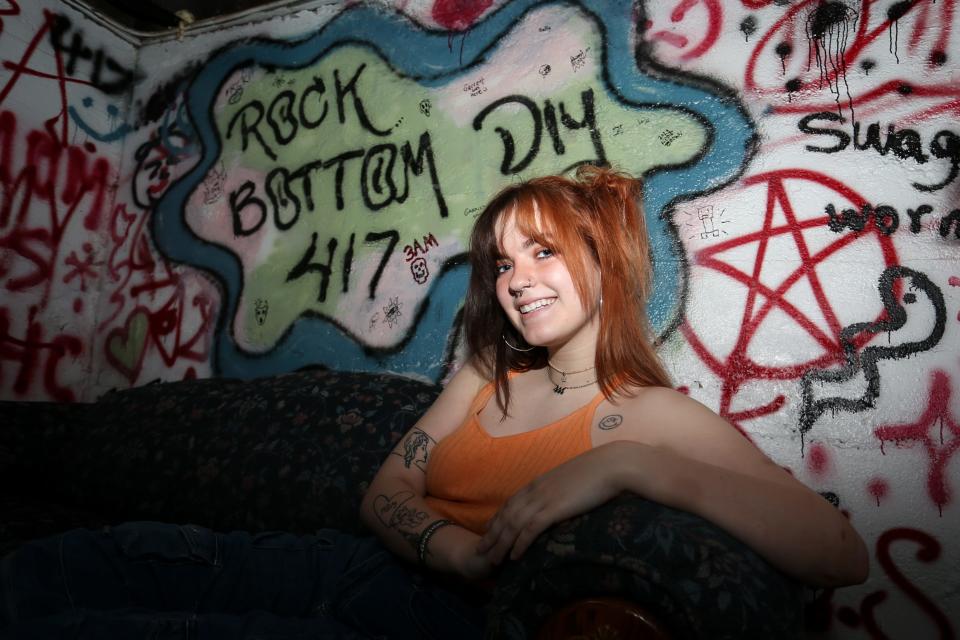
"Something that's really important to us is making sure that women and femme-presenting people, or people of that nature, always feel safe and comfortable, along with queer people as well," Brown said.
Another measure Grumbine takes to create a welcoming environment at their house, especially for touring acts, is to cook meals for the musicians before concerts.
"Last year, I would cook a lot before the shows just to set more of the atmosphere ... I just think breaking bread before playing a house show is a cool tradition," Grumbine said. "If you're on tour, you're pretty much subsisting off of Taco Bell and gas station snacks, so to have a home-cooked meal on tour, that goes a long way."
SUNFO, a Midwest emo band based in Oklahoma City, has performed in Springfield three times, once at The Outland Complex and twice at Grumbine's house. The first time was in March 2022 while they were on a tour of the Midwest.
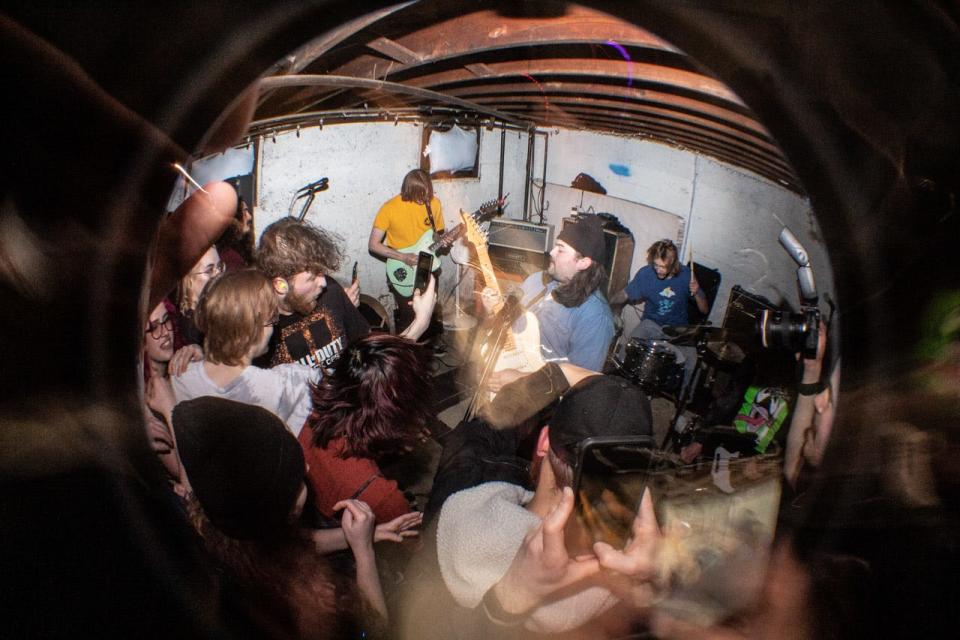
"We were exhausted," Hunter Hale, vocalist and guitarist, said about arriving to (Grumbine's house) for the first time. "When we got there, it changed our mood immediately because of how welcoming and how many people were there to support all the local artists."
Prior to that show last spring, Grumbine served the performers vegan gumbo and lavender water, which the SUNFO members recalled fondly.
"You're lucky to get paid in DIY spaces, I feel like, most of the time," bassist Skyler Wilkerson said, emphasizing that Grumbine's hospitality was a rarity for the band while on tour.
How the Internet changed DIY
Social media has helped propel DIY communities to a more mainstream audience recently, but the advent of the Internet brought earlier changes to how these communities operate.
Johnston said the Internet made it easier to share music, book tours, and background check a DIY house venue owner or space.
"Back in the day, I would play some of the seediest, scariest places," Johnston said, noting his band once inadvertently booked a show at a drug dealer's home in Tulsa. "We get to the show and they're like, 'Yeah, every time I sell dope, I give your tape to somebody.' And we were like, 'What?'"
Johnson added that before email, his home phone bill would sometimes be over $400 a month after calling around to different venues trying to book his bands. Today, musicians are encouraged to message the house venues on social media to inquire about performing at the venues.
How DIY concerts have been promoted has also evolved over the years. In the '90s and early 2000s, promotional flyers were often a combination of hand-drawn elements and photographs, digitally scanned to create one cohesive piece. These flyers were commonly physically hung around town.
Harper, co-producer of "Ozark Babylon," remembers going to his father's office to create flyers for his bands and the two DIY venues he operated in the late 1990s, Harper's Bizarre and The Looney Bin.
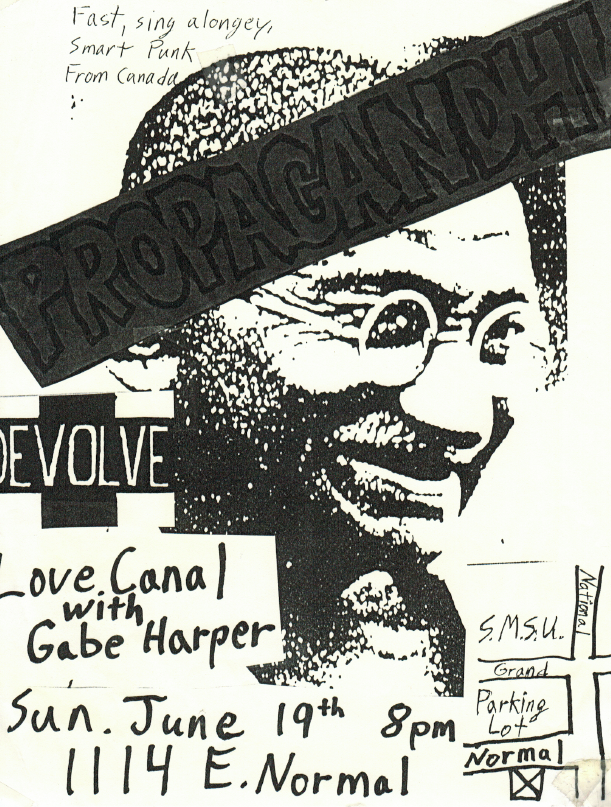
"What I would do is go to my dad's office, I'd get on the electric typewriter and I'd type all the texts for the flyers up, then I'd cut that out and blow it up on the photocopier, so it got this kind of weird, distended typeset look to it," Harper said. "I think one time I cut a picture out of my parent's Encyclopedia Britannica, which they didn't appreciate. I cut out a picture and blew it up and put it on the flyer, it was a picture of Gandhi."
Today, most posters are created digitally and shared via social media, but they are visibly inspired by the patchwork design of those crafted in the decades prior.
Frances Day, member of local band My Ancestor, frequently creates concert flyers for the local house venues. Similar to works created by folks like Harper, Day said they enjoy creating collage art, incorporating both original and found elements.
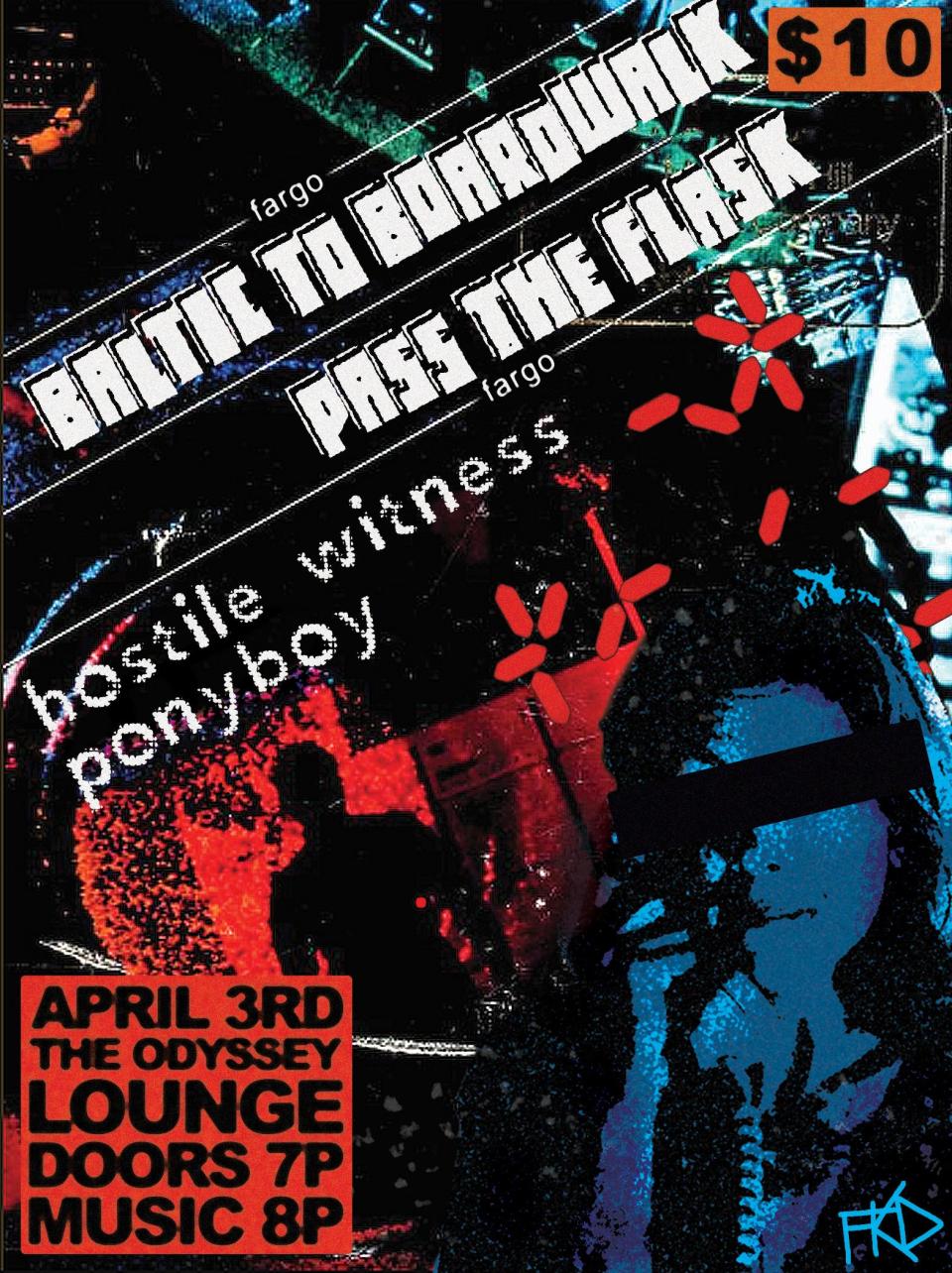
A community with folk, punk roots
Located in the Ozarks, Springfield's DIY community features a unique blend of punk and folk roots. As folks were thrashing in dark basements to punk guitar riff bouncing off the walls, others gathered in living rooms to enjoy local folk musicians pluck acoustic guitars.
While some of the ideals around folk and punk house concerts were and are different, one goal has remained the same: creating an accessible, intimate setting for live music.
In 1982, Springfield resident Patty Van Weelden founded the Ozark House Concert Series in her home, and the series would continue through 2001, ending because it became too large and expensive to manage, according to previous News-Leader coverage.
Similar to concerts at DIY venues today, the Ozark House Concert Series was operated entirely by volunteers with a passion for live music. In 1997, a fundraiser concert was held for a new sound system, but otherwise, folks involved didn't make money from the performances.
"That was the miracle of the whole thing: It was done entirely on volunteer blood, sweat and tears," Van Weelden told the News-Leader in 2003.
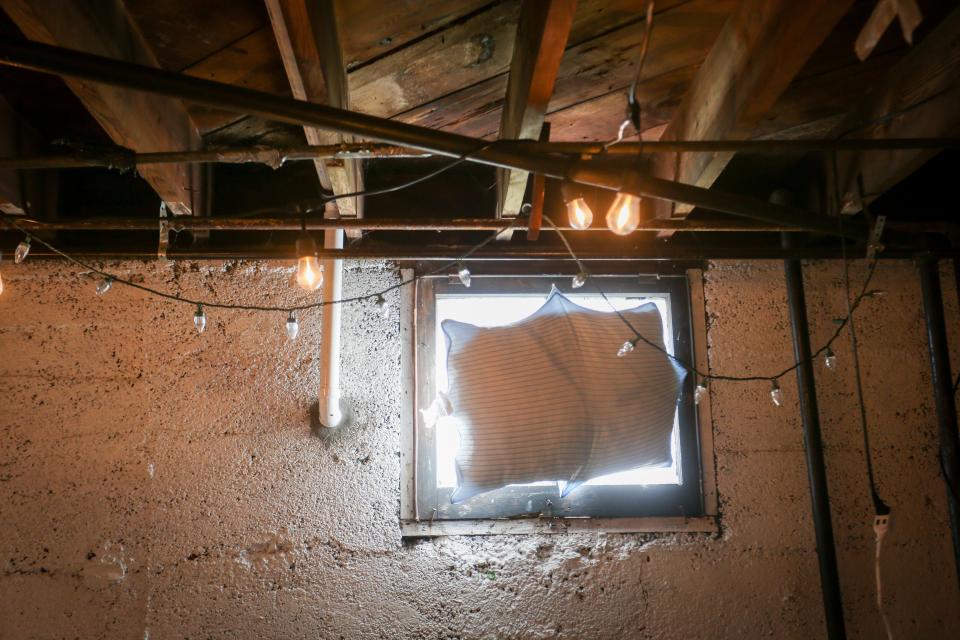
Over the years, there have been countless punk-style DIY venues, operated from houses and more commercial-like spaces in Springfield. Those looking for a trip down memory lane may remember Harper's Bizarre or The Looney Bin, both operated by Harper in the late '90s, or art community centers The OBEC and The Lemon Drop, open in the 2010s.
Looking to the future, Grumbine said they have different ideas for making DIY concerts more accessible while supporting local causes, such as assisting Springfield's unhoused community.
"I don't want to continue doing house shows, even though they're a lot of fun, but ultimately I have plans beyond it," Grumbine said. "I think it would be most plausible to do (concerts) at a church under like a fundraising event. I think it would be a pretty easy avenue to keep doing this and it would be a net good for the greater Springfield community."
This article originally appeared on Springfield News-Leader: 3 house venues fill void of commercial music venues in Springfield

